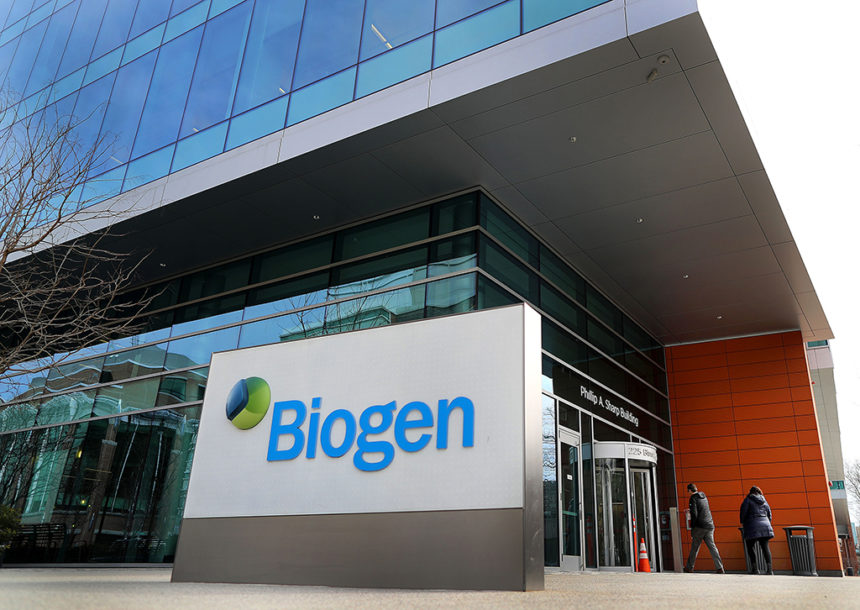The long and tumultuous journey of Aduhelm has come to an end.
Biogen announced Wednesday morning that it is relinquishing the controversial Alzheimer’s drug.
Biogen said it will terminate development and commercialization of Aduhelm, including its post-marketing confirmatory ENVISION clinical study, which it was conducting to gain full Food and Drug Administration approval for the drug.
In a press release, the company noted it was “reprioritizing” its resources in Alzheimer’s to capitalize on long-term growth potential.
Instead, Biogen will go full steam ahead on Leqembi, another anti-amyloid beta drug that already has full FDA approval in the U.S. Leqembi won approval in July 2023, six months after it was given an accelerated approval, marking a significant milestone in treating Alzheimer’s.
Biogen noted its decision to drop Aduhelm was not related to any safety or efficacy concerns, but that it wanted to redirect resources from Aduhelm to other aspects of its Alzheimer’s pipeline. That includes several new drugs it’s investigating — an ASO targeting tau called BIIB080, and an oral small molecule inhibitor of tau aggregation, BIIB113.
“As a pioneer in Alzheimer’s, Biogen is reprioritizing resources to build a leading franchise to address the multiple pathologies of the disease and patient needs,” Biogen CEO Christopher Viehbacher said in a statement. “We plan to further advance the launch of Leqembi, together with Eisai, and continue to bolster innovation with the development of the other assets in our pipeline.”
Since gaining accelerated approval in June 2021, Aduhelm encountered a variety of controversies and setbacks.
Despite the regulatory greenlight, questions about Aduhelm’s efficacy and benefit to patients — amid concerns of dangerous side effects — arose, leading many major hospital systems to refuse to prescribe patients the drug.
Then, in 2022, the Centers for Medicare and Medicaid Services announced it would limit coverage of the drug to patients who were participating in clinical trials, partially due to a lack of clinical evidence that the drug was beneficial.
All of that, paired with Aduhelm’s hefty price tag — $56,000 per patient — contributed to Biogen pulling back on its promotional efforts in 2022 and reducing its estimated revenue for the drug.
In late 2022, Congress published a report following an investigation into Biogen’s relationship with regulators during the accelerated approval process. The report noted that the approval was “rife with irregularities” and raised “serious concerns about the FDA’s lapses in protocol.”
After Aduhelm failed to become the blockbuster drug it was once projected to be, Biogen sought potential partners and external funding for the drug, but that turned up futile. Instead, it plans to close out the program with an estimated cost of $60 million and return the right of the drug to Swiss biotech Neurimmune.
However, the company seems to be convinced that its investment in Aduhelm wasn’t entirely a waste. Veihbacher noted that Aduhelm was a foundation that Biogen plans to build upon.
“When searching for new medicines, one breakthrough can be the foundation that triggers future medicines to be developed,” Viehbacher said. “Aduhelm was that groundbreaking discovery that paved the way for a new class of drugs and reinvigorated investments in the field.”
To read a February 2024 article about Biogen’s Q4 revenue and profit shrinking as the company pivots to Leqembi prospects, click here.







